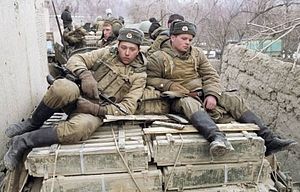In early May 1992, Mujahideen resistance fighters entered Kabul, laying claim to Afghanistan’s capital after the collapse of the communist regime. At the time, the city had not been severely damaged by warfare and Soviet occupation. The 27 years since then have not been kind to Kabul, though.
One reason that no one has been able to put a stop to Afghanistan’s cycle of violence is that regional and international political interests have, for the last 40 years, eclipsed the best interests of the Afghan people.
Placing the people of Afghanistan at the center of the ongoing debate about how best to fight extremism and terrorism should be a key to success in the international effort to stabilize Afghanistan and to win the peace there. Unfortunately, popular concerns seldom have figured into discussions about the past, present, and future of Afghanistan. The moral obligation of helping Afghans build a strong state and a secure future appears to be a secondary consideration for foreign powers as they strive to defend their national security interests in Afghanistan.
It’s very likely that the Afghan people would have long ago built a functioning, even prosperous, state had the country not become the arena of Cold War confrontation between the former Soviet Union and the West led by the United States. Not only that, it’s also likely the September 11 terrorist tragedy would never have occurred.
Afghans made extreme sacrifices during the 1980s on behalf of what was then deemed “the Free World.” It is dismaying, then, that those Cold War-era sacrifices are hardly remembered or recognized in some NATO countries today. The tremendous loss of life and civilian displacement in Afghanistan — 2 million killed, between 4 and 6 million wounded, and millions more turned into refugees — during that bygone era seems completely forgotten by many in the West. This point was driven painfully home when, during a cabinet meeting on January 2, U.S. President Donald Trump noted: “The reason Russia was in Afghanistan was because terrorists were going into Russia. They were right to be there.”
Moreover, once the occupying Soviet army departed Afghanistan in 1989, Western interest in the country evaporated. As a result, reconstruction was completely neglected back then. So, it’s easy to see why Afghans are wary of international motives in this latest phase of Afghanistan’s 40-year war. They increasingly believe that international involvement has hardly been about them, about their rights, about their very basic expectations for peace and justice, or about their overwhelming demand for the institutionalization of peace and democracy in Afghanistan.
As they listen daily to the official statements of our foreign partners, Afghans may begin believing that international involvement in Afghanistan is more about the national security or geostrategic interests of the countries involved. These divergent and conflicting interests, Afghans may think, seem to determine what should or can be done, or what should not or cannot be done, to stabilize and rebuild the country.
Despite their wariness, Afghans have not lost hope in their partners, or in the future of their country. An Asia Foundation survey of the Afghan people released in 2018 confirms that a widespread mood of optimism and sense of unity exists among Afghans: “Over half of Afghans surveyed (59.6 percent) report that the National Unity Government (NUG) is doing a good job. Perceptions of provincial governments have also improved, with 61.3 percent reporting their performance as ‘very good’ or ‘somewhat good,’ up from 56.9 percent in 2017.”
If the state-building enterprise for Afghanistan is to succeed over the long term, it must be Afghan-centered and Afghan-led. In other words, international peace building efforts must henceforth be driven by Afghan hands, and not simply have an “Afghan face.” Without building peace by and for the sake of Afghans, the current drama will most likely turn into a tragedy again, not just for Afghanistan but for its nation-partners as well.
M. Ashraf Haidari is the Ambassador of Afghanistan to Sri Lanka.

































